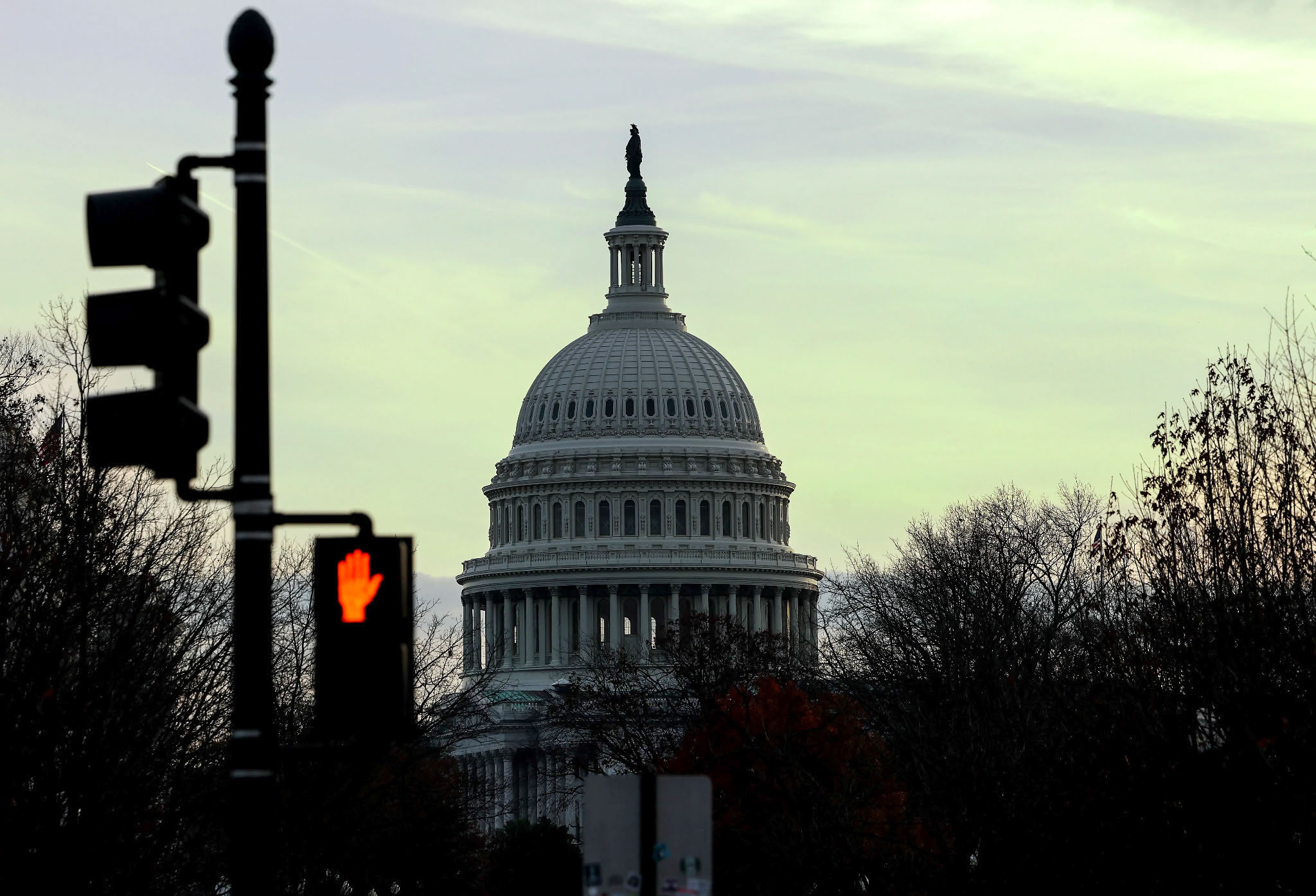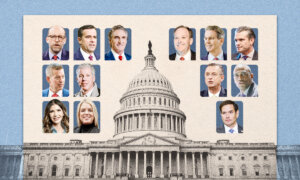WASHINGTON—The House on Dec. 19 voted down a pared-down, Trump-backed plan to fund the government with just more than 24 hours until a government shutdown begins.
In a 235–174 vote, lawmakers rejected the proposal. The group voting against the bill included all but two Democrats and a slate of conservative Republicans. The bill, which advanced to the floor via a method known as suspension, needed a two-thirds majority to pass.
In addition to extending the deadline for government funding through March 14, the 116-page proposal included about $30.1 billion for emergency hurricane relief, a one-year extension of the farm bill, and a suspension of the debt ceiling until Jan. 30, 2027—aligning with a demand made by President-elect Donald Trump.
The pared-down proposal replaced a previous 1,547-page government funding plan that faced strong pushback from Trump and many congressional Republicans.
Democrats, who have historically backed government funding measures, objected to the withdrawal of the original proposal that emerged from weeks of bicameral negotiations. Several Republicans objected to the inclusion of a provision to raise the debt ceiling as well as new spending in the bill.
The bill’s failure leaves the next steps unclear, as the government is set to go into a shutdown at 12:01 a.m. Eastern Time on Dec. 21.
House Speaker Mike Johnson (R-La.) may now bring the bill to the Rules Committee, which would mean a simple majority vote on the floor if the panel clears it. However, it is not clear whether the Rules Committee will advance the bill, given that Reps. Chip Roy (R-Texas) and Thomas Massie (R-Ky.), both members of the panel, have indicated their opposition.
Although there were hopes that the compromise plan could punt the issue to next year—allowing lawmakers to head home for the scheduled winter recess—there were strong signs that the legislation was on rocky ground ahead of the vote.
Democrats objected to raising the debt ceiling through the legislation, as the issue offers them a rare piece of leverage in the upcoming Congress.
House Minority Leader Hakeem Jeffries (D-N.Y.) said of the provisions to raise the debt ceiling, “Hard pass.”
During a Dec. 19 press conference, Jeffries noted that a bipartisan agreement had been reached and that the House GOP should honor it.
“That bipartisan agreement has now been detonated because House Republicans have been ordered to shut down the government and hurt the very working-class Americans that many of them pretend to want to help,” he said.
Jeffries called the debt ceiling talk “premature at best.”
President Joe Biden has also signaled opposition to the alternative proposal on similar grounds.
“Republicans are breaking their word to support a bipartisan agreement that would lower prescription drug costs and make it harder to offshore jobs to China,” White House press secretary Karine Jean-Pierre wrote in a statement.
“President Biden supports the bipartisan agreement to keep the government open, help communities recovering from disasters, and lower costs—not this giveaway for billionaires that Republicans are proposing at the 11th hour.”
The new bill replaced an earlier package that resulted from weeks of private negotiations but faced immediate pushback from both House and Senate Republicans after its release on Dec. 17. Members decried what they said was giving up the farm to Democrats with pork-barrel spending.
This initial funding plan included disaster relief, transferring Robert F. Kennedy Memorial Stadium from the federal government to the District of Columbia, and a one-year extension of the farm bill.
However, the knockout blow was delivered by Trump, who issued a statement against the bill along with Vice President-elect JD Vance. The joint statement followed an all-day push on social media platform X by Elon Musk, a close political ally of the incoming president, against the massive funding package.
Trump called for an alternative package that would raise the debt limit, although the ceiling is not expected to be reached until June 2025 because of a 2023 agreement between former House Speaker Kevin McCarthy (R-Calif.) and Biden.
The 2023 agreement suspended the debt ceiling through Jan. 2, 2025, but the Treasury Department usually finds assets to push the deadline as far away as possible.
The Economic Policy Innovation Center predicted on Dec. 16 that the government could reach the debt limit “as early as June or at least before August 2025.”
Trump wanted the debt ceiling to be raised through reconciliation, Rep. Ralph Norman (R-S.C.) told The Epoch Times.
Under the reconciliation process, legislation related to the national debt, spending, and revenue can pass without being subjected to the 60-vote filibuster threshold in the Senate.
There have also been discussions among some House GOP members about raising the debt ceiling through the Limit, Save, Grow Act, which the House passed last year. The bill raised the debt ceiling but implemented significant fiscal reforms, according to Norman.
Still, debt ceiling negotiations are a protracted process in Congress, even when Democrats are on board.
Without Democratic support, it will be nearly impossible for leadership to advance even a clean measure—an extension of government funding without additional policy measures. Such legislation has historically relied on Democrats’ support to pass, as Republicans are split about 50–50.
The funding fight could also determine whether Johnson will remain speaker come next month. The House GOP will have a narrower majority in the 119th Congress, and Johnson can afford to spare only a few Republican defections.
Jeffries said Democrats would not help Johnson keep the gavel even if he puts forth a continuing resolution favorable to Democrats.
Trump has not committed to supporting Johnson as speaker.
“If the speaker acts decisively, and tough, and gets rid of all of the traps being set by the Democrats, which will economically and, in other ways, destroy our country, he will easily remain speaker,” Trump told Fox News Digital.



















